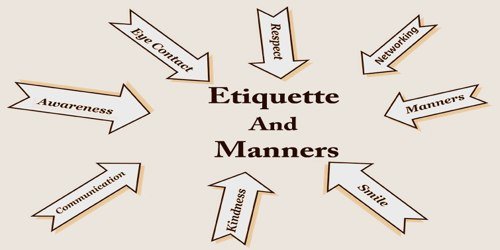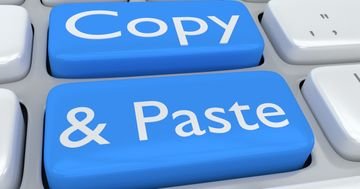What is an etiquette?
Etiquette is defined as the formal manners and rules that are followed in a social or professional settings.
Proper Understanding of plagiarism
Plagiarism is said to be the point of making use of other people's work or idea as yours, without acknowledging the fact it wasn't your own work. Also in the same line, pretending to be the initiator of the work , just to take all the credits to yourself, then you submits your work to the head, claiming to have done your work that's not really yours, without acknowledging the primary source you got it from.
Reasons why plagiarism is a crime
- It destroys ones career
A professional business person, politician, or public figure may find that the damage from plagiarism follows them for their entire career. Not only will they likely be fired or asked to step down from their present position, but they will surely find it difficult to obtain another respectable job. Depending on the offense and the plagiarist’s public stature, his or her name may become ruined, making any kind of meaningful career impossible.
It makes one feel lazy and reduce your thinking capabilities
Legal Repercussions:
The legal repercussions of plagiarism can be quite serious. Copyright laws are absolute. One cannot use another person’s material without citation and reference. An author has the right to sue a plagiarist. Some plagiarism may also be deemed a criminal offense, possibly leading to a prison sentence. Those who write for a living, such as journalists or authors, are particularly susceptible to plagiarism issues. Those who write frequently must be ever-vigilant not to err. Writers are well-aware of copyright laws and ways to avoid plagiarism. As a professional writer, to plagiarize is a serious ethical and perhaps legal issue.
4.monetary Repercussions
Many recent news reports and articles have exposed plagiarism by journalists, authors, public figures, and researchers. In the case where an author sues a plagiarist, the author may be granted monetary restitution. In the case where a journalist works for a magazine, newspaper or other publisher, or even if a student is found plagiarizing in school, the offending plagiarist could have to pay monetary penalties.
How to Evade plagiarism
(1). Credit the original author in an in-text citation and reference list.
(2). Use a plagiarism checker before you submit.
(3). Always cite other people's work, words, ideas and phrases that you use directly or indirectly in your paper. Regardless of whether you found the information in a book, article, or website, and whether it's text, a graphic, an illustration, chart or table, you need to cite it. When you use words or phrases from other sources, these need to be in quotes. Current style manuals are available at most reference desks and online. They may also give further advice on avoiding plagiarism.
(4).Simply using synonyms or scrambling an author's words and phrases and then using these "rewrites" uncredited in your work is plagiarism, plain and simple. Good paraphrasing requires that you genuinely understand the original source, that you are genuinely using your own words to summarize a point or concept, and that you insert in quotes any unique words or phrases you use from the original source. Good paraphrasing also requires that you cite the original source. Anything less and you veer into the dangerous territory of plagiarism
I have read and understood the Steemit Etiquette on Steemit Community and will do my best to embrace them.


